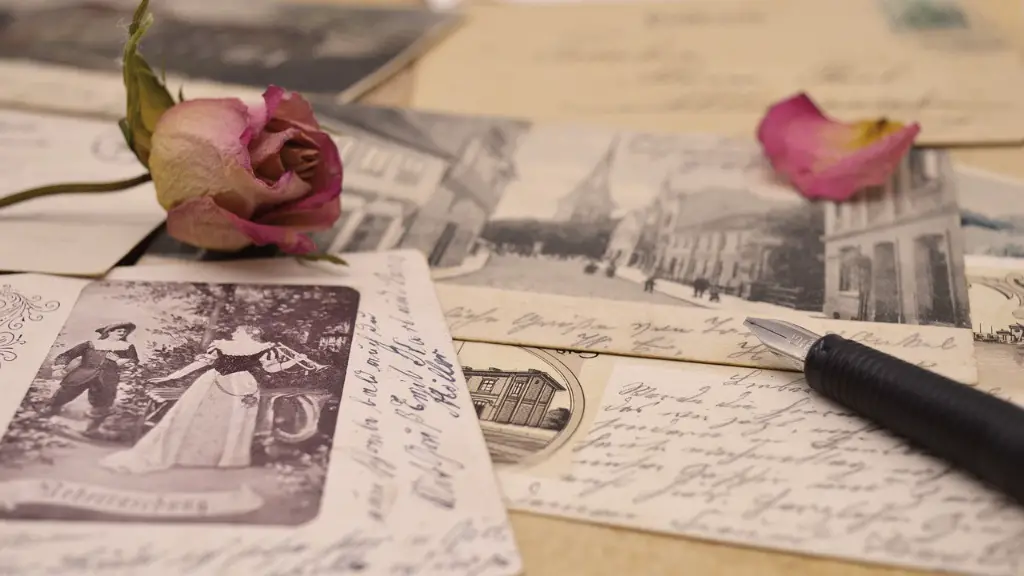Langston Hughes in Literary Circles
Langston Hughes is widely recognized as one of the most influential African American poets and writers of all time. He was born in 1902 and died in 1967, leaving behind a legacy of works that were widely celebrated both during his lifetime and in the years since his death. He is remembered today both for his accessible and lyrical writing, and for his impact on the civil rights movement and literature.
At a time when there was little representation of African American artists in the literary landscape, Hughes wrote about the experience and struggles within his culture in an accessible, emotional and musical way. His iconic poem, “A Dream Deferred”, is often quoted and regarded as one of the most influential pieces in American literature.
This piece is one of his most acclaimed works, and in it he touches on the struggle of African Americans, who felt their dreams were hindered by systemic racism. As a result, Hughes’ works demonstrate a sensitive understanding of the complicated, oppressive and unjust environment that African Americans were struggling with in the middle of the 20th century.
Hughes wrote over 60 books and was widely regarded by his peers. He was an integral figure in the Harlem Renaissance, a vibrant and influential period of African American literature and culture that began in the 1920s. He is also remembered today for his works of poetry, fiction and drama, his participation in the civil rights movement, and his inspiring commitment to social justice.
Langston Hughes’ Impact on African American Culture
Hughes had a profound impact on black culture at a time when there was little representation for Black people in literature. He sought to explore and celebrate Black culture, offering an accessible and communal understanding of African American life.
He represented the lives, struggles and joys of the Black community in a non-judgmental way and his works were often praised for their depth of emotion and characterisation. His works inspired a generation of African American writers to represent their experience in an honest and inspiring way.
He is also remembered for his activism, which was a crucial part of his legacy. He was a strong supporter of the civil rights movement, often speaking out against injustice and oppression. He was also a passionate advocate for political change and social justice.
He often used his literary platform to bring attention to the inequality and hardship endured by the African American community. Through his works and his activism, he made it his mission to give a voice to the voiceless and to inspire change.
Langston Hughes in Education
Today, Langston Hughes is remembered as an educator as well as a groundbreaking writer and activist. He was the writer-in-residence at numerous universities and was committed to sharing his talent with the next generation. Hughes was also a major contributor to the Federal Writers’ Project, in which he served as an instructor and editor. The project was created to provide work and help to out of work writers by giving them paid assignments. His focus was to provide them with enough of a salary to focus exclusively on their writing.
Hugh’s commitment to education was a major factor in his legacy. He was passionate about sharing the knowledge that he had accumulated from years of reading and writing and worked tirelessly to help inspire the next generation of writers. His creative approach to education has inspired many teachers to employ the same methods when teaching their students about literature. His legacy has made him a figure of veneration in academic circles.
Langston Hughes in Popular Culture
In addition to his educational and literary accomplishments, Hughes remains popular in popular culture today. His iconic poem “A Dream Deferred” has been quoted in countless films, television shows and literature. The poem has become a rallying cry for those championing civil rights and social justice.
The musical Hamilton also draws heavily on Hughes’ works. Lin-Manuel Miranda, the creator of the musical, has stated that Hughes’ writing was an influence and was an important part of the inspiration for the musical’s setting. The iconic poem “I, Too” has been used in the musical as well as in schools and communities around the world, emphasizing Hughes’ timeless appeal.
Hughes’ works continue to be recognized and adapted in films, television and literature. His works have been translated into multiple languages and are read around the world. He continues to be remembered for his accessible, lyrical and timeless writing, as well as his role in the civil rights movement.
Langston Hughes’ Commemoration
Many buildings and educational institutions have been named in Hughes’ memory, such as the Langston Hughes Elementary School in Washington and Langston Hughes Library in Los Angeles. His life and work has also been commemorated in multiple biographies, documentaries and books.
The Langston Hughes Educational Center and Langston Hughes Museum in Missouri are dedicated to preserving his legacy and sharing his work with the public. These institutions, along with other museums, libraries and educational institutions have worked diligently to keep his legacy alive.
There is also an annual Langston Hughes Poetry Festival in Missouri that seeks to celebrate his work and educate the public about his cultural and literary contributions. The festival features readings, discussion panels, performances and more.
Langston Hughes in the Future
Langston Hughes remains an iconic figure in American literature, his works still widely popular and respected today. With the growing demand for more representation of diverse voices in literature, Hughes will no doubt remain a revered and important presence in the literary community.
It is clear that Hughes’ influence will continue to shape the current and future literary landscape. He will remain an important source of inspiration for those championing justice and equality, and his works will continue to inspire people around the world to be more reflective and thoughtful.
Langston Hughes and the Civil Rights Movement
Civil Rights leader Martin Luther King, Jr. was known to be an admirer of Hughes’ works. He often quoted Hughes in his speeches and incorporated his themes into civil rights campaigns. He frequently used Hughes’ “I, Too” poem during rallies and marches to demonstrate the strength of the African American community.
King believed that Hughes’ writings articulated the struggles of African Americans in a powerful and meaningful way, and his works have had a lasting effect on our perception on civil rights and social justice. The Hughes’ poem “Let America Be America Again” is still quoted today by those seeking to bring attention to systemic injustice.
Hughes was a passionate advocate for civil rights and his works were informed by his commitment to justice. He was a strong supporter of just causes and saw himself as a defender of the oppressed. He used his platform to make his stance clear, and many of his writings reflected a moral code of ethics.
Langston Hughes’ Legacy
In conclusion, Langston Hughes remains an iconic and influential figure in American literature and culture, and his works continue to be revered and read around the world. His works have had a lasting effect on our perception of civil rights and justice, and he continues to be remembered as an educator, writer and activist.
His legacy is commemorated in numerous institutions and programmes, and he continues to inspire writers, activists, and educators. Hughes’ mission to encourage social inclusion, bring attention to injustice and embrace diversity is as relevant today as it was during his lifetime.





